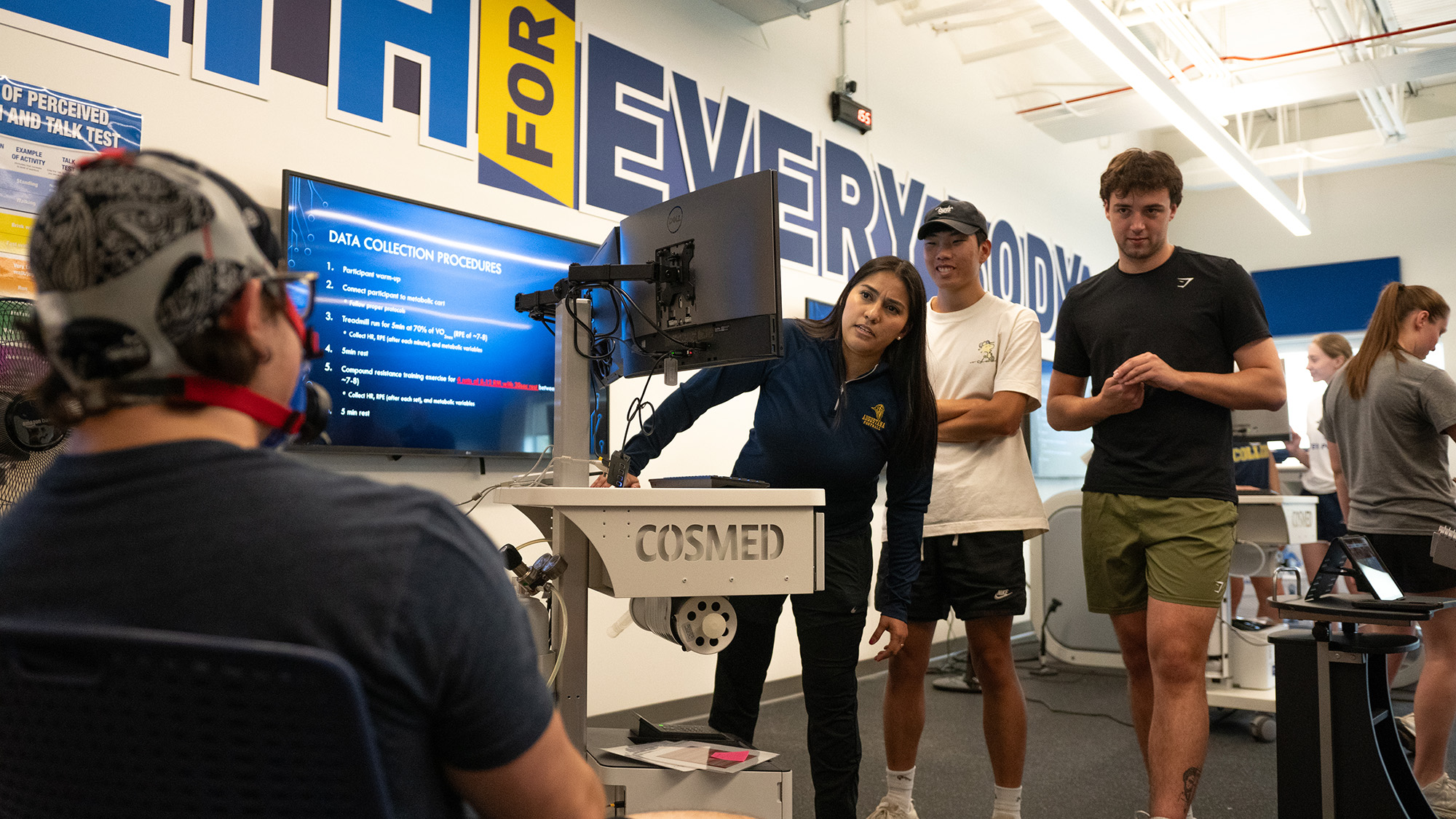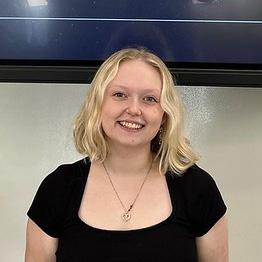The ultimate guide to choosing a kinesiology major
Many schools, Augustana College among them, have added academic programs in kinesiology in recent years. If you’re wondering what a kinesiology major is, where it can take you after college and what you should consider before declaring, here are some tips.
What is kinesiology? Why should I consider a kinesiology major?
From exercise to injury recovery, kinesiology is the interdisciplinary study of human movement. Kinesiology students focus on physical activity and how the human body's movement impacts health, well-being and quality of life. Instead of a single approach to physical activity, students explore physiology, biomechanics, socio-cultural factors, and other perspectives related to health and human performance.
So, if you have an interest in sports, fitness, athletic training or a health-related field, kinesiology could be a great fit.
The Bureau of Labor Statistics projects a 10-14% job growth rate for professional fields such as exercise physiology and athletic training between 2023-33. A kinesiology degree provides excellent background for these fitness-related and other health and wellness fields.
How do I choose a kinesiology school?
If you know you want to study kinesiology, you should make sure the schools you consider will offer the support you need to be successful while you're a student and after you graduate. Here are some things to look for:
Dedicated faculty
Your professors and advisors should be as committed to your success as you are. While looking at schools, schedule a meeting with a professor from the kinesiology department. They should be willing to share with you more information about the major itself, as well as average class size in the department, their teaching style, course/major expectations and details about advising.
Updated facilities
Unlike other majors that may require little more than classrooms and lecture halls, kinesiology needs space for hands-on activities. Because you'll be studying the way the human body moves, you'll need access to labs for classroom activities and research.
Though new, state-of-the-art equipment isn't required to learn kinesiology, it doesn't hurt. Take advantage of opportunities to tour labs and facilities open to kinesiology students in addition to a regular campus tour. You should expect to see classrooms, resource areas and exercise laboratories.
Career and internship support
Don't underestimate the importance of guidance opportunities offered by a college. Ideally, any college you consider will offer help finding and landing internships, help preparing graduate school applications and/or career guidance.
What can I do with a kinesiology degree after I graduate? How much do kinesiology majors make?
One (of many) great thing about majoring in kinesiology is that it doesn't limit you to just one career path after you earn your bachelor's degree. Graduates with a kinesiology degree have the potential for careers in a variety of industries, including health care, education and sports.
Depending on interests and courses taken, students who study kinesiology may be prepared to pursue a rewarding career in exercise science, sports management or health and fitness instruction.
With additional training or a graduate degree, a kinesiology student also may pursue a career as a strength and conditioning coach, occupational therapist, physical therapist, physician assistant, exercise physiologist, chiropractor, ergonomic specialist or wellness coordinator.
According to payscale.com, college graduates with a bachelor's degree in kinesiology make an average of salary of $71,000 with a B.A. or B.S.
Augustana's kinesiology program
Why should you choose Augustana for your kinesiology degree?
- The college's Peter J. Lindberg, M.D., Center for Health and Human Performance features labs, classrooms and resource centers for kinesiology, as well the natatorium. Students have access to the latest teaching and research equipment in classrooms and active learning spaces, including a functional training lab and a human performance lab.
- Augustana kinesiology students gain hands-on experience through research and public service events, such as a community Fitness Clinic in the Lindberg Center, offering body composition tests or a VO2 max test of maximal oxygen uptake during exercise.
- A well-rounded education with a background in the liberal arts deepens students' understanding of the diversity of human needs and behavior.
- Augustana's kinesiology program includes a focus on social issues in human wellness, helping students understand real-world applications of the subject and its effects.
One-of-a-kind career and internship support
Augustana has an excellent track record for graduating students in the health sciences, including a 100% acceptance rate for students applying to master's programs in public health programs over 25 years, and a medical school acceptance rate about 50% above the national average.
Regardless of the major students choose, Augustana is known for hands-on professional and graduate school preparation.
The multi-talented career mentors and advisors at CORE (Careers, Opportunities, Research and Exploration), Augustana's career and exploration center, help an average of 150 students find health care-related internships or job shadows each year.
Faculty attention and mentorship
Augustana has an 12:1 student-faculty ratio and professors truly get to know their students, regardless of major. The ability to form relationships with professors gives Augustana students unique opportunities to find close mentors and advisors in their field, and many serve as research assistants or co-authors as undergraduates.
Now what?
If you're a high school student still searching for the right college, the admissions team can help you decide if Augustana is a good fit for you. Start by exploring our admissions information, including visits and financial aid, or request more information.
If you're already in college and wish to transfer to a school that offers kinesiology, start by exploring our options for transfer students.

